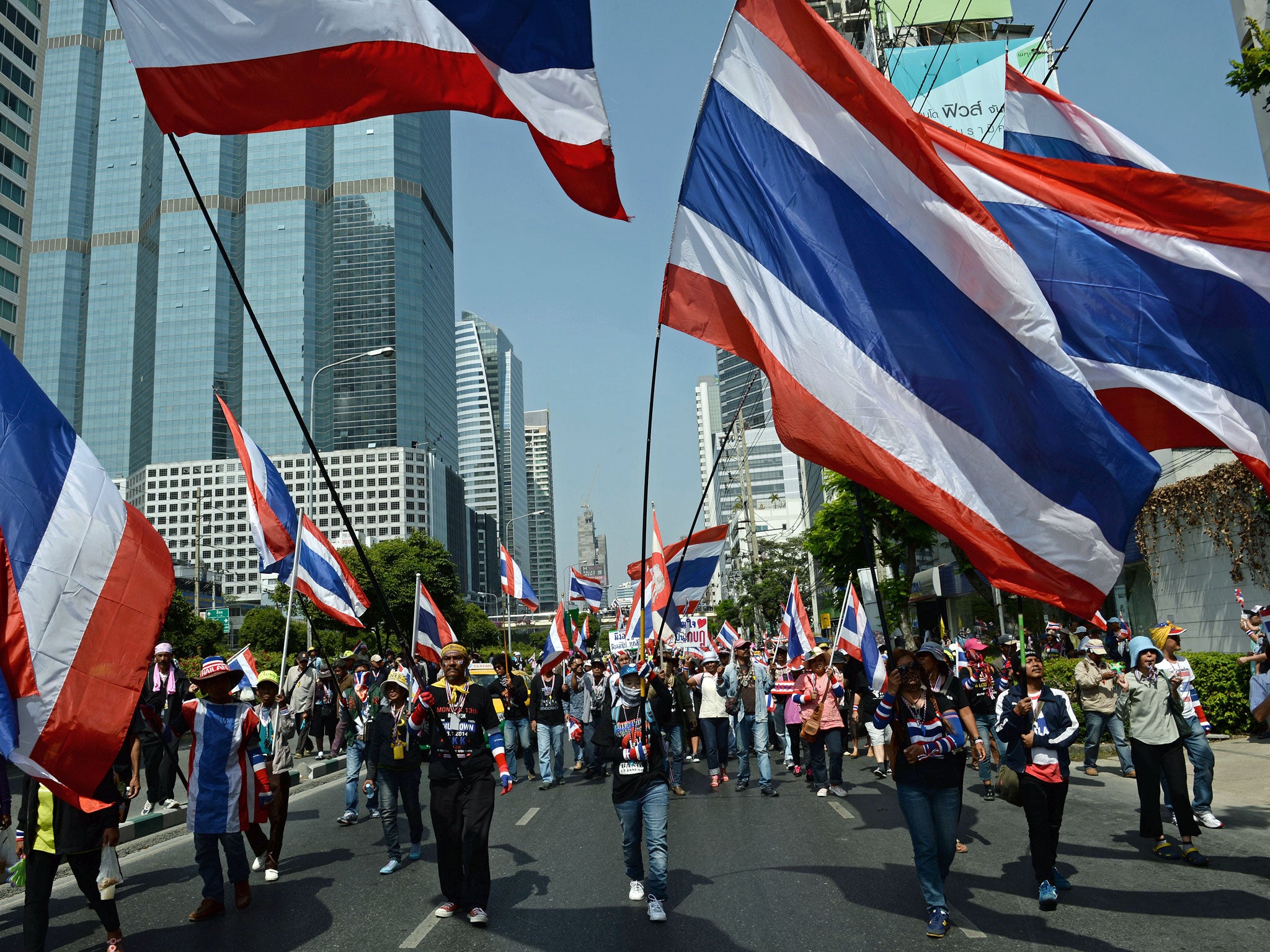Thailand declares state of emergency in bid to quell Bangkok protests
Bangkok and its surrounding provinces will be subject to the decree for 60 days

Thailand has declared a state of emergency in Bangkok and its surrounding provinces, in an attempt to prevent escalating violence after three months of anti-government protests.
The decree will take effect on Wednesday, lasting for 60 days and greatly expanding the power of security forces to issue curfews, and censor the media.
It will also give forces greater powers to search protesters, ban political gatherings of more than five people, arrest and detain people without charge, and close off areas of the capital.
Labor Minister Chalerm Yubumrung told a nationally televised news conference: “We need [the decree] because the protesters have closed government buildings, banks and escalated the situation, which has caused injuries and deaths.
“The government sees the need to announce the emergency decree to keep the situation under control,” he added.
He announced the measure after a cabinet meeting which had to be held at an air force headquarters in the north of Bangkok, because protesters are preventing Prime Minister Yingluck accessing her offices in Government House.
The government and anti-government protesters both blame each other for an increase in attacks at protest sites, including grenades thrown in daylight, and drive-by shootings.
On Sunday, 28 people were wounded by two grenades that were tossed at one of several protest sites set up at key Bangkok intersections.
A grenade attack on a protest march on Friday 17 January killed one man, and wounded dozens more. No arrests have been made in connection with either attack.
Protesters have been demanding the resignation of the Prime Minister since November, to make way for an appointed government to implement reforms to fight corruption.
Yingluck called elections on 2 February in an attempt to appease the situation, but the protesters have insisted they should not be held.
Additional reporting AP and Reuters .
See more photos from the Thai anti-government protests here:
Subscribe to Independent Premium to bookmark this article
Want to bookmark your favourite articles and stories to read or reference later? Start your Independent Premium subscription today.

Join our commenting forum
Join thought-provoking conversations, follow other Independent readers and see their replies